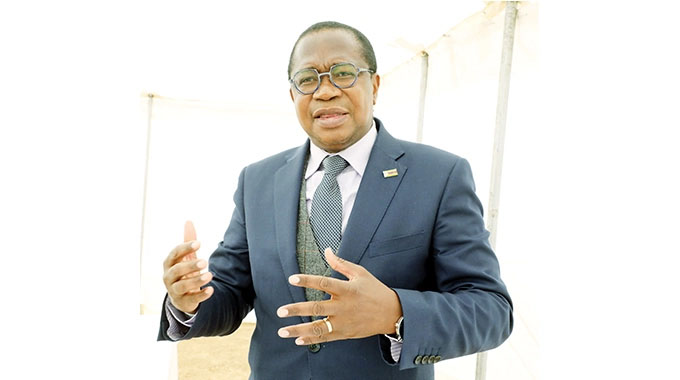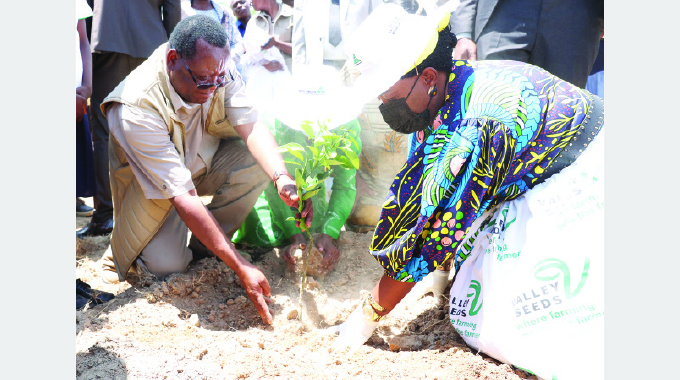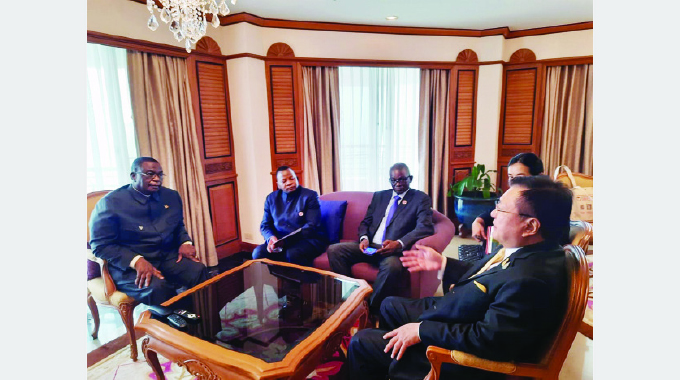Thumbs up for social protection measures

Rumbidzayi Zinyuke-Senior Reporter
The decision by the Second Republic to set aside $50,4 billion to support vulnerable citizens through food, school fees and cash transfers, has been praised by a cross-section of people who said the move shows the Government cares for its people.
Presenting the 2023 National Budget, Finance and Economic Development Minister Professor Mthuli Ncube said last week that the Government would continue providing social protection services through its mainstream programmes.
These include the harmonised social cash transfers for the poor, food deficit mitigation programmes, basic education and health assistance, child protection services as well as support to the elderly and persons with disabilities.
In separate interviews, many people said budgeting to take care of people affected by various challenges including the Covid-19 pandemic and climate change-induced poor rains was the best thing a Government could do for its people.
Mr Munyaradzi Hove of Kuwadzana 2 in Harare said it was necessary for the Government to continue supporting people who live in drought prone areas.
“My father in Zvishavane is vulnerable because the area is usually affected by drought.
“The fact that Government is assisting people in such areas with food is really commendable. We appreciate it because no one will go hungry as the President has repeatedly said.”
Ms Nkanyezi Sibanda of Budiriro, but originally from Hwange, said BEAM (Basic Education Assistance Model) was helping many learners from vulnerable families that could not afford basic education.
“We have many families with children that were not going to school because their parents could not afford school fees. But through BEAM, they are now going to school with the rest of their peers. We appreciate this and hope that more children will be included in future,” she said.
A Kambuzuma resident, Mr Wellington Makonese said his business was badly impacted by Covid-19 and he is struggling to recover.
“I am into buying and selling of goods. However, since the outbreak of Covid-19 and the subsequent lockdown measures to minimise the spread of the pandemic, my business suffered and I would be glad to get financial support from the Government so that my family overcomes the challenges we are presently facing,” said Mr Makonese.
Prof Ncube said the provision of decent, inclusive and sustainable social protection services was key to improving access to basic social services by people with disabilities, children and the elderly.
Next year the Government would come up with policies to strengthen the implementation of the programmes and systems in order to “improve the impact of these social protection programmes”.
Such policies would include the older persons in line with the dictates of the Older Persons Act.
Government will also develop an after-care policy meant to support children who leave children’s homes after turning 18 years, to ensure continuity of the support they were receiving while in residential care.
The major chunk of the budget allocation towards social protection of $23 billion would be channelled towards BEAM.
A further $1,2 billion will be channelled towards assisting children in difficult circumstances in keeping with President Mnangagwa’s mantra of leaving no one and no place behind.
BEAM was set up in 2000 to enhance access to primary and secondary education for orphans and vulnerable children. Through the programme, hundreds of thousands of children have gone through primary and secondary education.
Drought mitigation was allocated $12,1 billion to ensure no one starves, while $9,28 billion was set aside for harmonised cash transfers.
Cash transfers were introduced in 2011 by the Ministry of Public Service, Labour and Social Welfare in order to “strengthen purchasing power of 55 000 ultra-poor households who are labour constrained”.
The cash transfers sought to increase households’ consumption to a level above the food poverty line, reduce the number of ultra-poor households and help beneficiaries avoid risky coping strategies such as child labour and early marriages.
The Second Republic has a strong policy that instead of subsidies, which benefit rich and poor alike, the money available should be targeted and paid directly to those in need.
Other areas that will receive funding include support to children on the streets ($430 million), health assistance ($1,1 billion), support for disabled persons ($1,46 billion), support for the elderly ($400 million), sustainable livelihoods ($635 million), management information system ($105 million), Covid-19 response ($200 million) as well as $500 million for pauper burials.
According to the 2022 Population and Housing Census, people with disabilities are estimated at about 1,4 million, constituting almost 10 percent of the population, although some have minor disabilities, with some overcoming these on their own to be fully productive.
“As we move towards Vision 2030 and SDGs (Sustainable Development Goals) 2030, of “leaving no one and no place behind”, Government is committed to attend to the needs of this special group.
“This includes ensuring that PWDs (people with disabilities) access education for skills and entrepreneurial development, providing an opportunity for them to benefit from the Public Service Disability employment quarter of 15 percent,” said Prof Ncube.
On the Tripartite Negotiating Forum, he said, social dialogue was one of the four pillars of the Country Decent Work Programme, of which the fourth cycle was being implemented for 2019-2023.
“Successful social dialogue structures and processes have the potential to resolve important economic and social issues, encourage good governance, advance social and industrial peace and stability and boost economic progression. To this end, the establishment of an independent TNF secretariat will be completed during 2023,” added Prof Ncube.











Comments